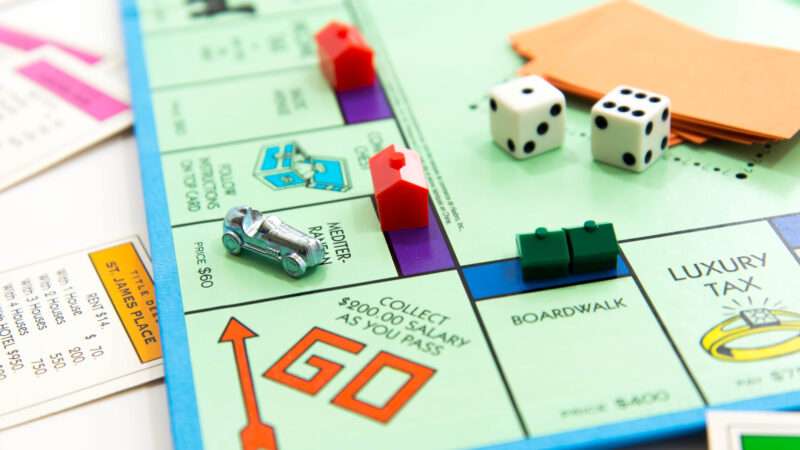
Nina Turner is a former Ohio state senator, internet personality, and self-described democratic socialist. She often feuds with libertarians about "Medicare for All," minimum wage, and other economic policies.
This week, she tweeted the following: "There's literally a children's board game that demonstrates that 'free-market capitalism' always leads to one person controlling everything."
There's literally a children's board game that demonstrates that "free-market capitalism" always leads to one person controlling everything.
— Nina Turner (@ninaturner) July 26, 2023
One presumes that she is referring to the board game Monopoly. Assuming that's the case, this is a deeply flawed reference. In actuality, Monopoly's winner-take-all dynamics do not reflect poorly on capitalism, free markets, or even property acquisition.
First, a bit of history. Monopoly was designed in the early 1900s by Lizzie Magie, a feminist activist, anti-monopolist, and a disciple of Henry George—a Progressive Era economist who supported a single tax on land value. George's views weren't entirely incompatible with free markets; he supported free trade, opposed protectionist measures like tariffs, and thought a single tax on land value was the most efficient way for the government to raise revenue without penalizing development and other productive economic activities.
Magie wanted Monopoly—originally called The Landlord's Game—to promote Georgism by showing that monopolists grabbing up property is a pernicious danger if not counteracted by a land value tax. Monopoly was never intended as an argument against free market capitalism per se.
As such, the rules and game mechanics don't exactly undermine the legitimacy of the capitalist system. As most people know from playing the game—which is weirdly popular, despite being somewhat unrewarding at both casual and advanced levels of play—Monopoly involves rolling dice, moving game pieces onto game spaces, buying property, and collecting rent. Players earn more money from their properties if they also own neighboring spaces and then develop them. There are gains to be had from trading properties with other players, but market mechanisms are mostly absent.
For instance, the amounts of money earned by landing on spaces is prearranged by the game's rules. In a free market, a landlord might charge more or less in order to entice renters and compete against rivals; in Monopoly, rents are set in stone. If anything, this is an argument against government-imposed rent control.
The fact that players must go bankrupt, one by one, until only the game's winner remains is a function of the game's design, not of capitalism. Indeed, this mechanic is actually so poorly developed that games of Monopoly often end well before this point is reached: People frequently quit the game because it takes so long. Even under conditions artificially engineered to reach an end-state where "one person controls everything," per Turner's description, the game often doesn't work out that way.
If Turner wanted to learn more about free markets—and play a much more enjoyable game than Monopoly—she could check out Catan. In Catan, players gain and trade resources in other to acquire settlements, build roads, and further develop their land. The trading mechanic is key and, in the long run, rewards all players: At the game's end, everybody's civilizations are more impressive than they would have been without market-induced cooperation.
(For more expert board game fans, I would also recommend Agricola, which shows how hard it was for people to feed themselves prior to the creation of capitalism. Its tagline is "The 17th century, not a very easy time for farming!")
The post There's Nothing Free Market About the Board Game Monopoly appeared first on Reason.com.







